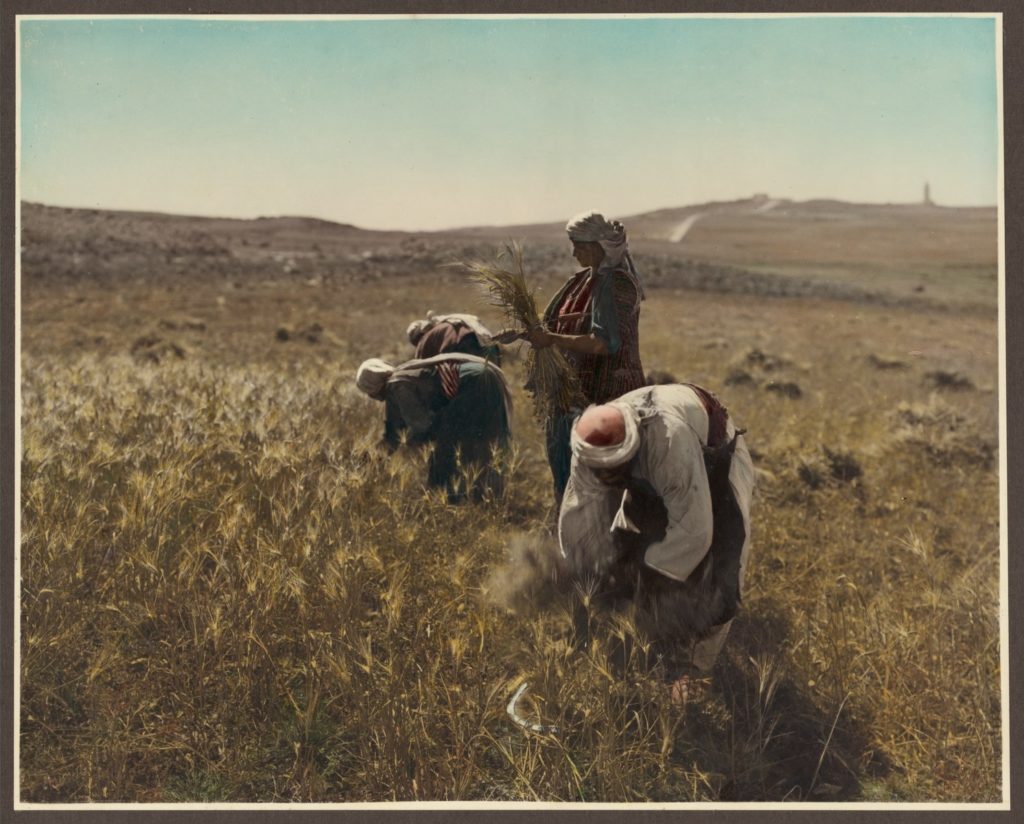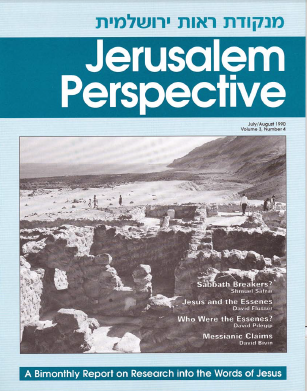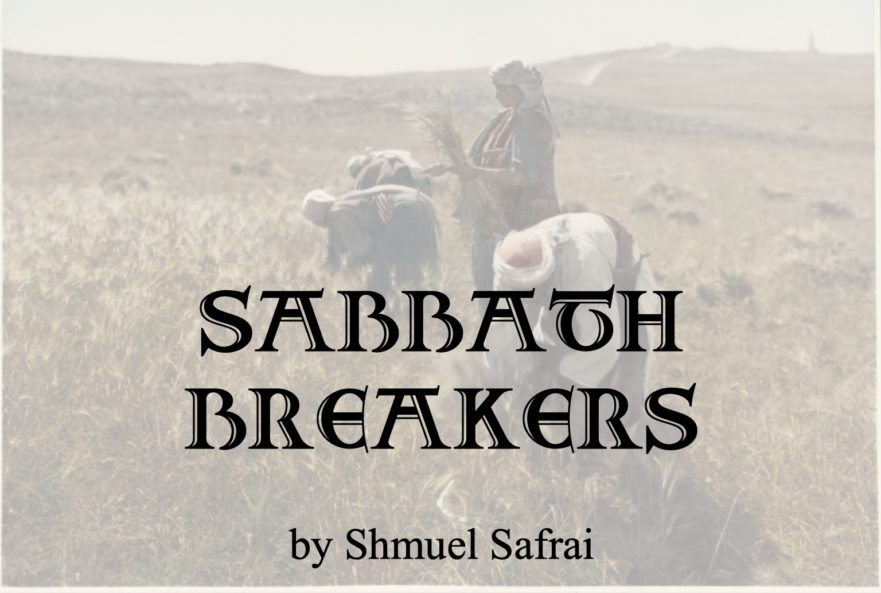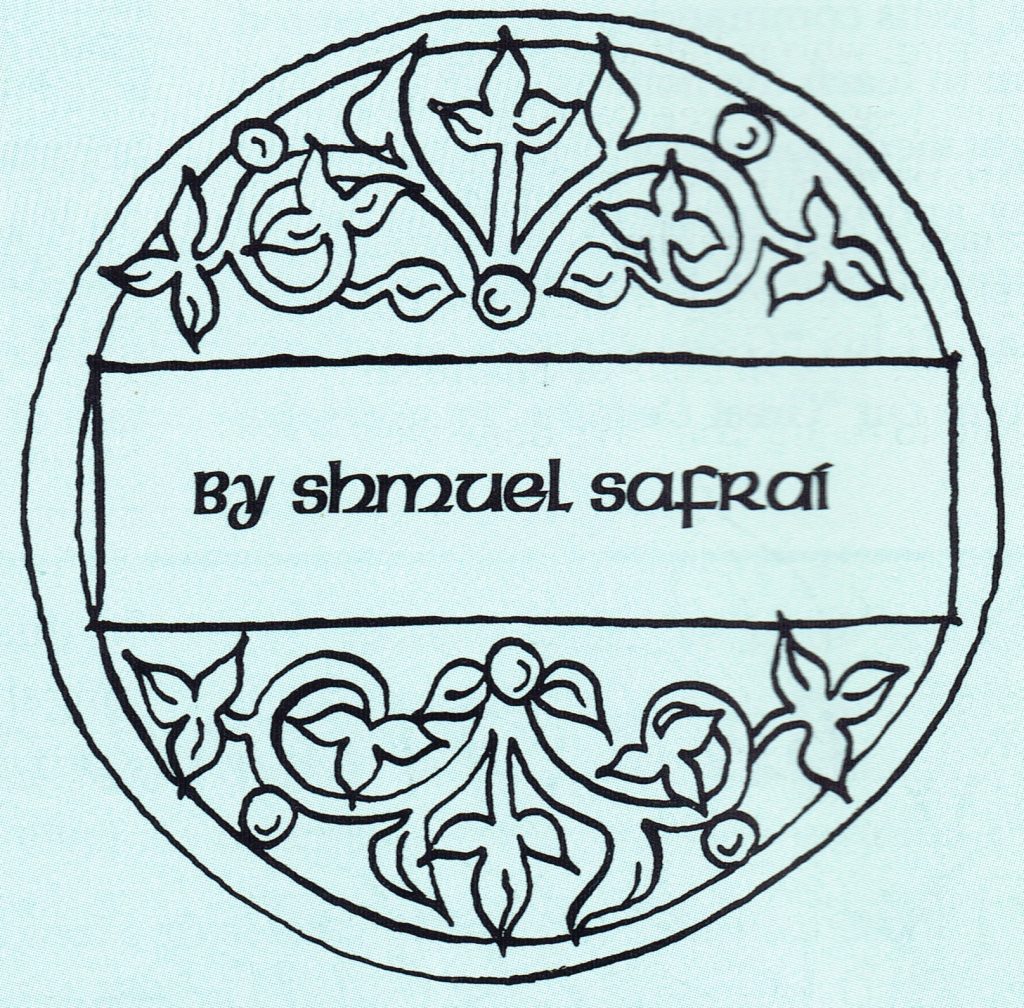| Rather listen instead? |
| JP members can click the link below for an audio version of this essay.[*] Paid Content If you do not have a paid subscription, please consider registering as a Premium Member starting at $10/month (paid monthly) or only $5/month (paid annually): Register One Time Purchase Rather Than Membership  |
And it came to pass on the second Sabbath between Passover and Shavuot that he was going through the grainfields, and his disciples plucked heads of grain, rubbed them in their hands and ate them. And some of the Pharisees said, “Why do you do that which is not permitted on the Sabbath?”
And Jesus answered them and said, “Haven’t you read what David did when he and his men were hungry, how he entered the house of God and took the shewbread, which only the priests are permitted to eat, and ate it and gave it to his men?”
And he said to them, “Man is master of the Sabbath.” (Luke 6:1-5)
This story is also narrated in the other two synoptic Gospels (Matt 12:1-8 and Mark 2:23-28), but Luke’s version is more complete, mentioning such details as the exact time of year when the events took place—spring, the second Sabbath in the cycle of the counting of the omer—and the fact that it was only some of the Pharisees who accosted Jesus.
Paid Content
Premium Members and Friends of JP must be logged in to access this content: Login
If you do not have a paid subscription, please consider registering as a Premium Member starting at $10/month (paid monthly) or only $5/month (paid annually): Register
One Time Purchase Rather Than Membership
Rather than purchasing a membership subscription, you may purchase access to this single page for $1.99 USD. To purchase access we strongly encourage users to first register for a free account with JP (Register), which will make the process of accessing your purchase much simpler. Once you have registered you may login and purchase access to this page at this link:

Paid Content
Premium Members and Friends of JP must be logged in to access this content: Login
If you do not have a paid subscription, please consider registering as a Premium Member starting at $10/month (paid monthly) or only $5/month (paid annually): Register
One Time Purchase Rather Than Membership
Rather than purchasing a membership subscription, you may purchase access to this single page for $1.99 USD. To purchase access we strongly encourage users to first register for a free account with JP (Register), which will make the process of accessing your purchase much simpler. Once you have registered you may login and purchase access to this page at this link:




![Shmuel Safrai [1919-2003]](https://www.jerusalemperspective.com/wp-content/uploads/userphoto/20.jpg)




























































































